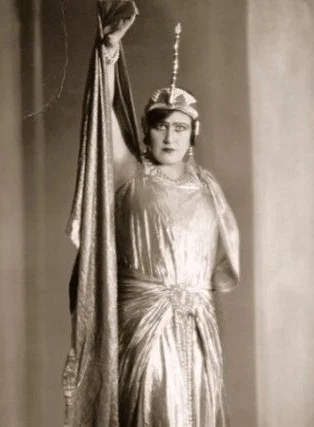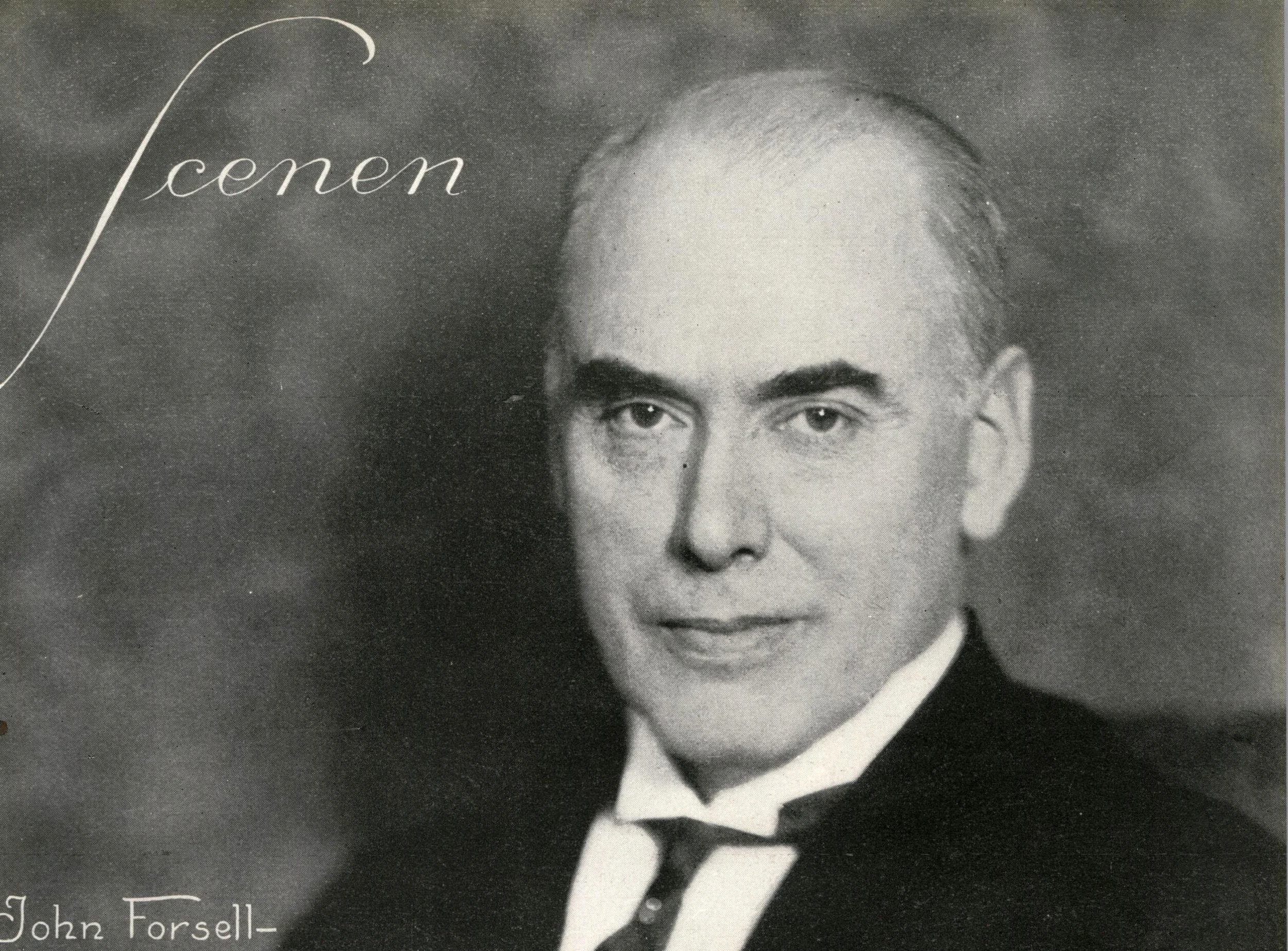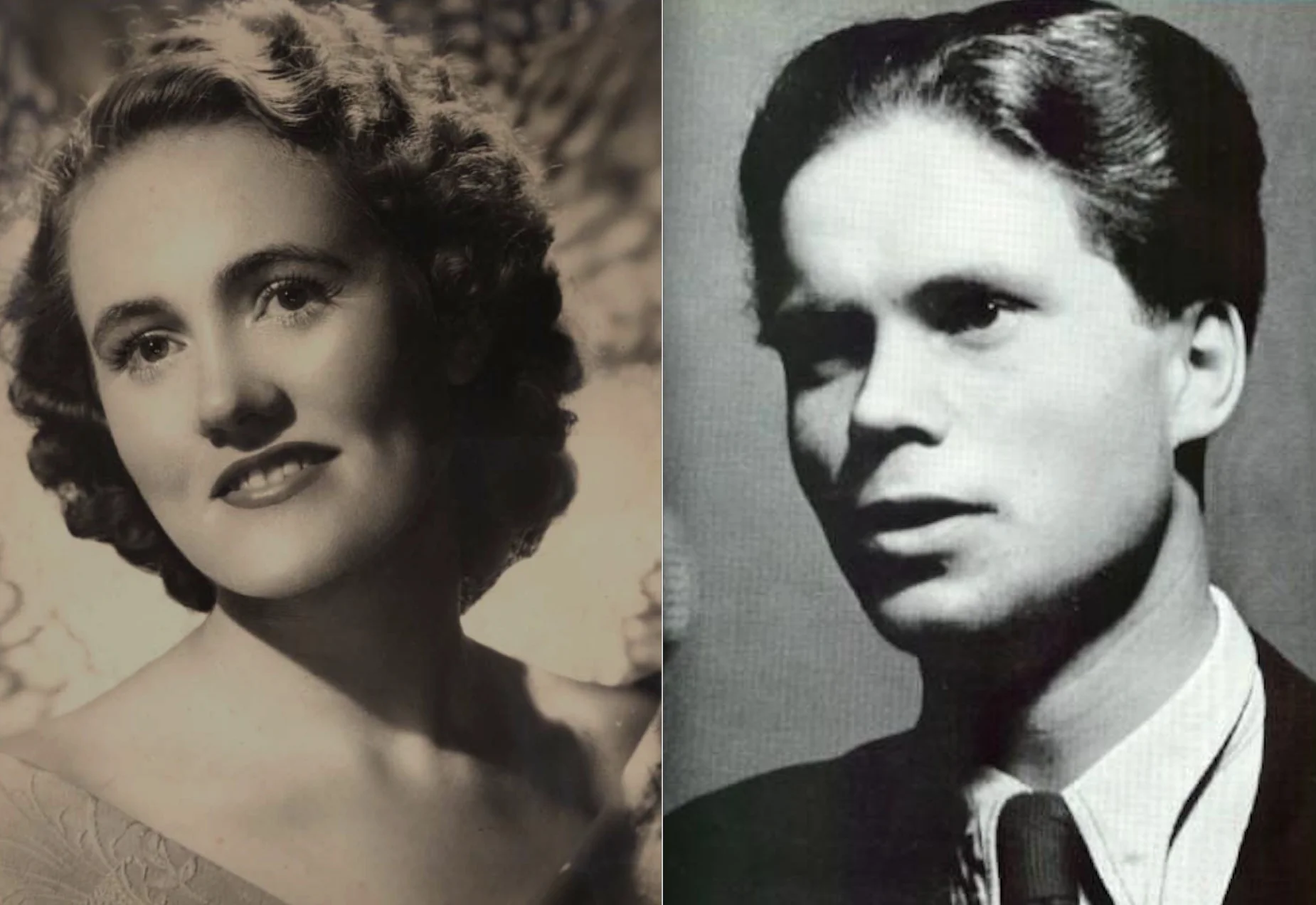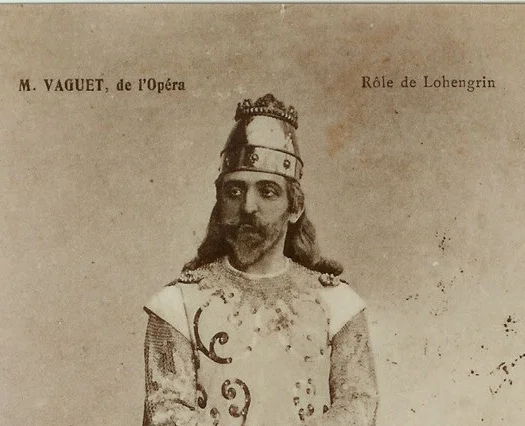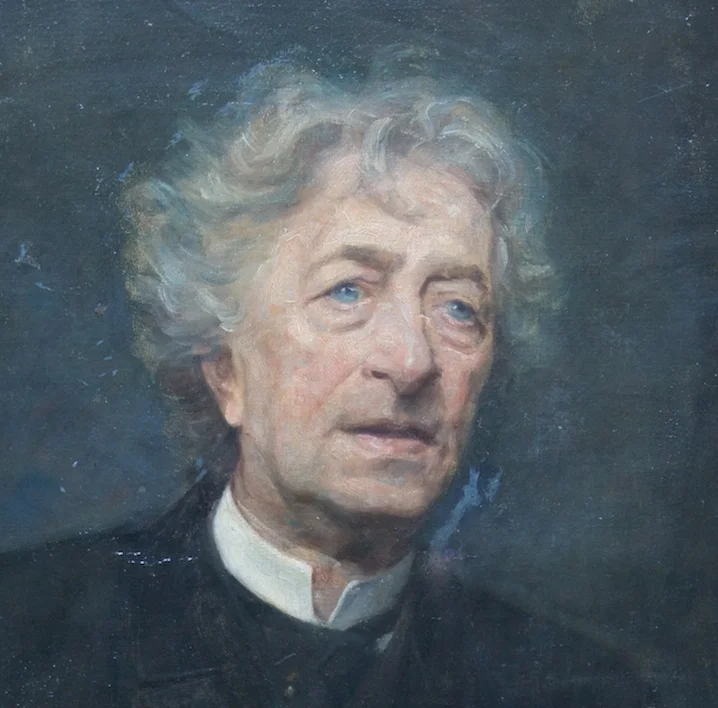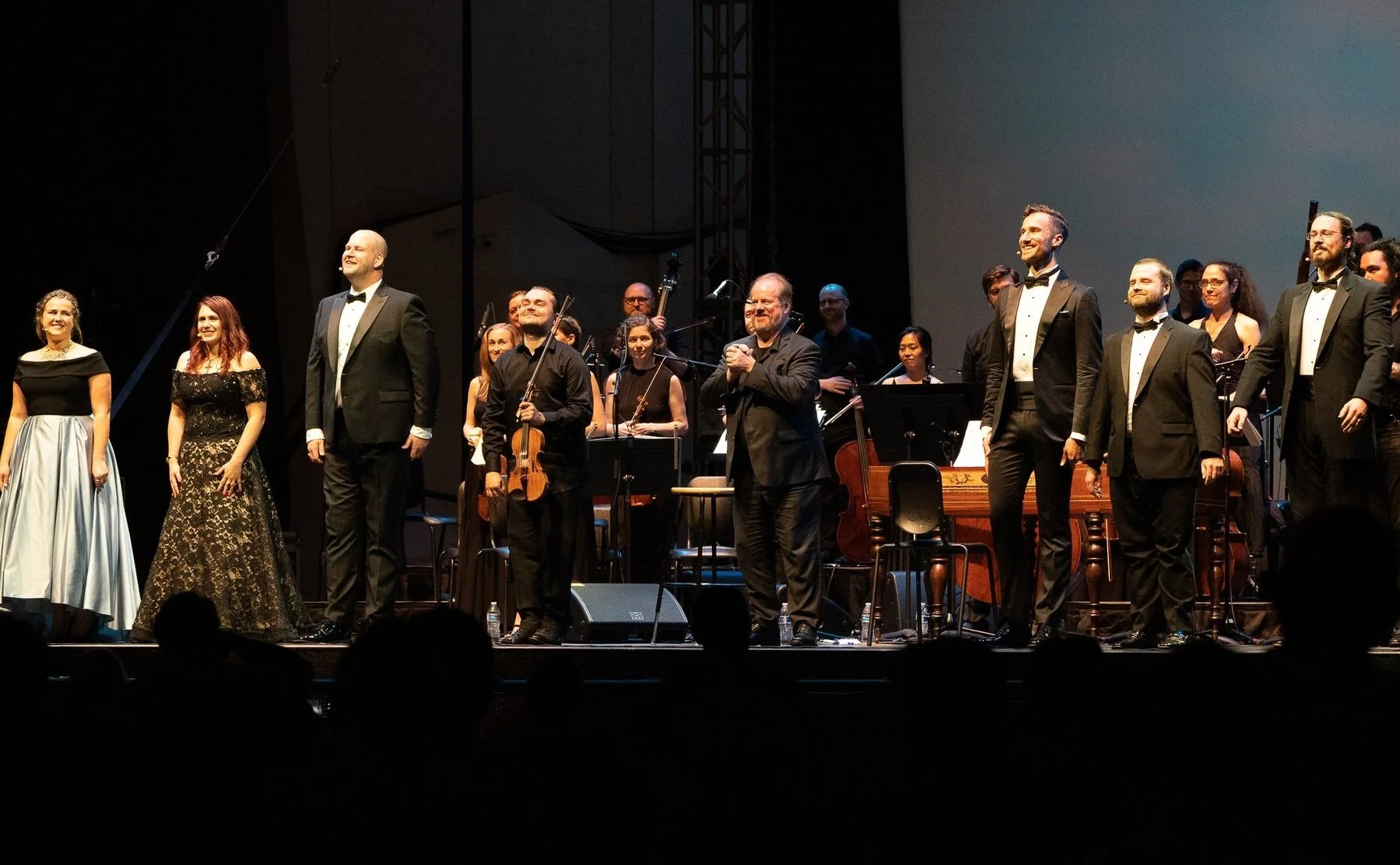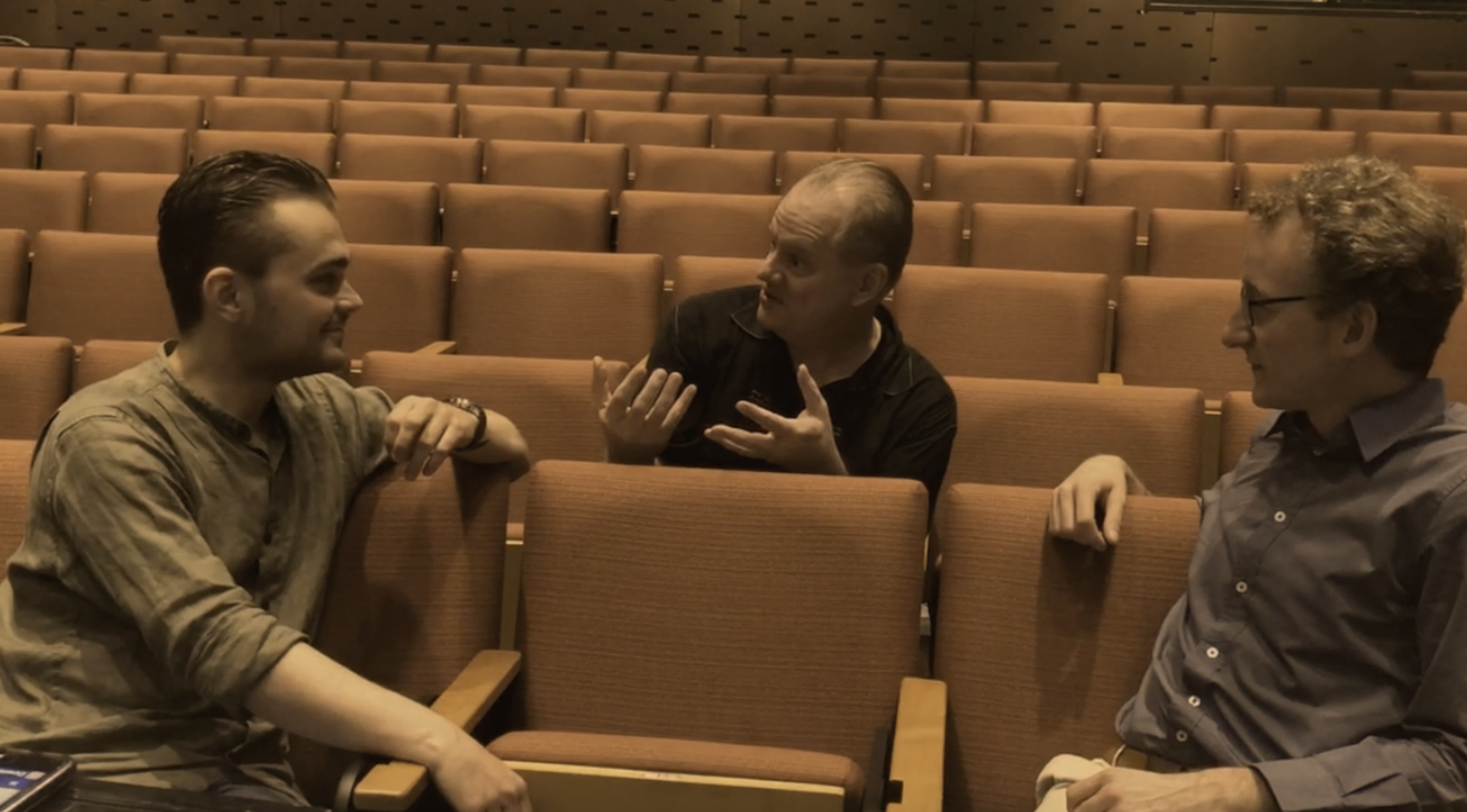The Good Mr. Widdop
If I had to rely on one example to illustrate the beauty of J.S. Bach’s sacred vocal music, this week’s record would be it. First, there is the oboe solo of Léon Goossens (1897-1988), who makes out of the ten-bar prelude a devotional poem that must have inspired everybody in the room. Third, there is the blend and legato phrasing of the Philharmonic Choir in 1930. In between those, second, the tenor voice of Walter Widdop (1892-1949), who defines an ideal.
Walter Widdop in the 1920s
“Serviceable” is usually a condescending compliment (or a euphemism for unstated faults), but “service” is exactly what is wanted here. The beauties of harmony, melody, and tone itself are to carry the listener into contemplation of the religious content: the Christian soul’s wish to keep watchful vigil with its suffering Savior, “that thus our sins might sleep.”
In Widdop’s record, all vocal sins are asleep and the virtues are on alert. Calm, firm emission of the sustained notes wherever they lie; complete clarity of English pronunciation; attack and release untroubled; tone that is beautiful without drawing attention to its sensory properties. Bach’s difficult coloratura - not fast enough for simply setting the mechanism on “run,” not slow enough to treat each pitch as an individual melody-note, constantly changing direction and alternating steps with skips - sounds in his voicing natural, simple, and sure. One doesn’t have to think at all about the technical challenges for the singer; surmounting those is an act of devotion in itself, and the result is pure music for ear and heart to follow.
What else did this near-perfect Bach singer sing? Answer: every Wagner tenor role from Erik forward, including Tristan opposite the Isoldes of Kirsten Flagstad, Frida Leider, Eva Turner, Florence Austral and Göta Ljungberg. On non-Wagner nights, Radames, Samson, Canio, and Wozzeck’s Drum Major (but also Grimoaldo at the first London performance of Handel’s Rodelinda in 200 years). On non-opera nights, the British premieres of Oedipus Rex and Das Lied von der Erde; Elgar’s oratorios with the composer conducting, and all the main English works of Handel. In the studios, the first-ever recording of Bach’s B-minor Mass and sturdy British-tenor standbys like “Tom Bowling” and “The Death of Nelson.”
If he could do all that well (and he could; see the mash-up below), why hasn’t he gone down in history as a superstar?
There does seem to have been an aspect of “serviceability” that may have played better in the British Isles than beyond them. Every one of his many records is admirable, but I wouldn’t say that a vivid personality emerges from them. Many anecdotes suggest he had one, offstage. But certain national clichés come to mind: “Gets the job done.” “Doesn’t make a fuss.” He may have been too good a fit for a nation whose critics could write descriptions like the one by Paul J. Weaver of the Music Supervisors’ Journal, which reads in full “The Tristan is Walter Widdop, whose fine voice and style are known well.” Andrew Porter, the longtime critic of The New Yorker, who could write far more passionately than that, heard Widdop as Parsifal in 1949, and when I asked sixty years later what it was like, Andrew gave a wordless shrug that seemed to say “nothing memorable.”
But then there is this, from the Sydney Morning Herald: “The Tannhäuser who returned unforgiven to the Wartburg was a truly pitiable, frenzied figure, and the long narration of his unhappy story was deeply impressive.” And this, from the same review, for anyone who might listen to his Bach and suspect he was barely getting by in all those Heldentenor roles: “his voice rose magnificently above the tumult in the tense scene of his denunciation in the second act.” A welterweight tenor, however skillfully he might negotiate the rest of the role, would find it almost impossible to provoke that particular observation against that particular tumult.
Here is a mash-up to confirm Widdop’s skills in other repertory: a bit of Handel in which the coloratura is fast, aggressive, and still perfectly clean, plus fragments from Faust and Götterdämmerung, each containing a difficult high C that may have been matched but probably hasn’t been bettered.
The singer died suddenly the day after his final performance, Lohengrin’s Farewell at a Proms concert. The Times headlined its obituary ““Mr. Walter Widdop – A Fine English Tenor.” If that is to be his epitaph, it should at least be added that strong Bach and clean Wagner are good things to have around.
Postscript: Our “fine English tenor” made one improbable appearance on the big screen, playing himself in a forgettable 1933 film, The Song You Gave to Me. He sings what is supposedly a “very popular German tune.” The tune turns out to be watery imitation-Lehar, and “charisma” is not exactly the word for the delivery, but I’ll just say I could definitely stand to hear Walther von Stolzing sung like this.
Teatro Nuovo puts great emphasis on learning from the singers who had never heard, or heard of, microphone singing - primitive recordings from more than a century ago, forming a link to the traditions of opera’s heyday and the infinite potential of the natural, unassisted human voice. Check this space regularly for samples, and click here for some pointers on how to listen.





![Image 2 - Henry T. [Harry] Burleigh - Detroit Public Library.jpeg](https://images.squarespace-cdn.com/content/v1/596bb4e703596e837b624445/1591713684327-N7HW488JSZ7EN8T5AJSR/Image+2+-+Henry+T.+%5BHarry%5D+Burleigh+-+Detroit+Public+Library.jpeg)







